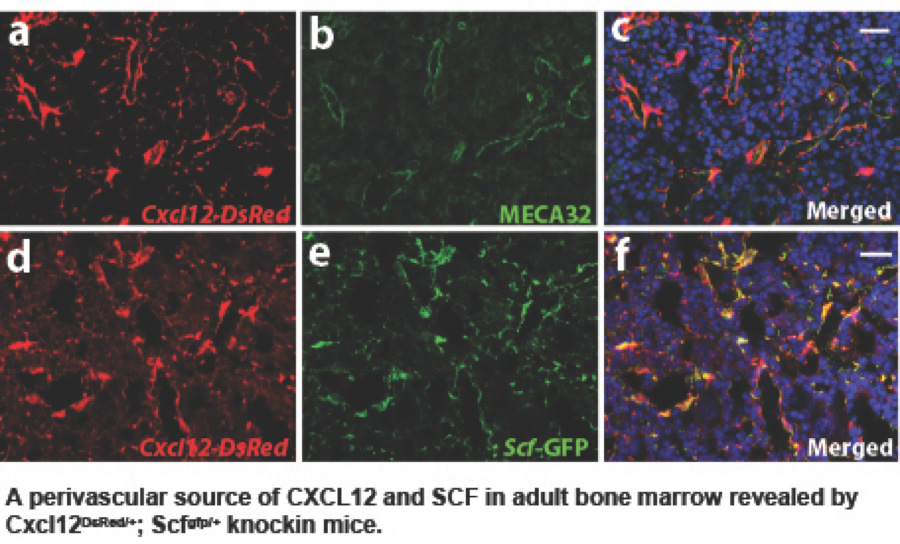We are investigating the molecular and cellular mechanisms that regulate stem cell function in the hematopoietic system. Hematopoietic stem cells (HSCs) play critical roles in the generation, homeostasis and repair of the blood and immune system via self-renewal and multilineage differentiation. They are maintained for life through self-renewing divisions where HSCs divide to produces HSC daughter cells. How self-renewal is regulated is a fundamental question in stem cell biology. HSC self-renewal is regulated by both HSC intrinsic and extrinsic mechanisms. In vivo, HSCs reside in a complex microenvironment and are critically regulated by factors secreted by cells that comprise a specialized niche. The HSC niche represents a critical element responsible for the extrinsic regulation of HSC self-renewal. Alterations to the microenvironment can contribute to the development of leukemia, bone marrow failure syndromes and anemia. Recently, we have found that HSCs reside in a perivascular niche, where endothelial cells and leptin receptor (Lepr)-expressing mesenchymal stromal cells generate key niche factors (SCF and CXCL12) for bone marrow HSC maintenance. We are focusing on investigating the mechanisms that extrinsically regulate HSCs in development, homeostasis and diseases. Understanding the HSC niche is a key step in helping design better strategies for in vitro expansion of HSCs, and for treatment of niche related diseases such as leukemia.


